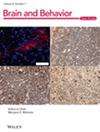Increased Brain Age Among Psychiatrically Healthy Adults Exposed to Childhood Trauma
Abstract
Background
Adults with childhood trauma exposure may exhibit brain changes typically associated with aging and neurodegeneration (e.g., reduced tissue volume or integrity) to a greater degree than their unexposed counterparts, suggesting accelerated brain aging. Machine learning methods that predict a person's age based on their magnetic resonance imaging (MRI) brain scan may be useful for investigating aberrant brain aging following childhood trauma exposure. Emerging evidence indicates altered brain aging in adolescents with childhood trauma exposure; however, this association has not been examined in healthy adults.
Methods
We investigated the associations between childhood trauma exposure, including abuse and neglect, and brain-predicted age in psychiatrically healthy adults. “Brain age” predictions were generated from T1-weighted structural MRI scans using a pre-trained machine learning pipeline, namely brainageR. The differences between brain-predicted age and chronological age were calculated and associations with childhood trauma questionnaire scores were investigated using linear regression.
Results
The final sample (n = 153; mean age 46 ± 16 years, 70% female) included 69 adults with childhood trauma exposure and 84 unexposed adults. Childhood sexual abuse was associated with an average increased brain age of 3.2 years, adjusting for chronological age and age-squared, sex, and scanner site; however, this finding did not survive correction for multiple comparisons.
Conclusions
To our knowledge, this study represents the first published investigation of brain age in adults with childhood trauma using a machine-learning-based prediction model. Our findings suggest a link between childhood trauma exposure, specifically sexual abuse, and accelerated brain aging in adulthood, but this association should be replicated in future work. Accentuated brain aging in adulthood may increase the risk of age-related cognitive and neurodegenerative decline and associated disorders later in life.


 求助内容:
求助内容: 应助结果提醒方式:
应助结果提醒方式:


